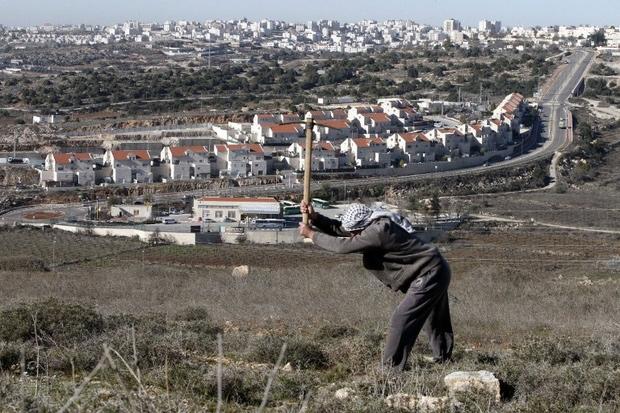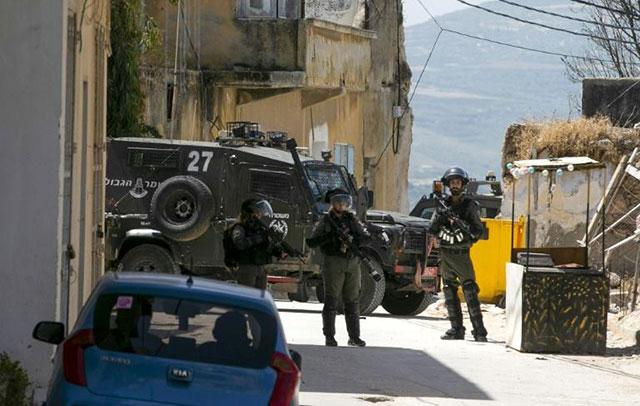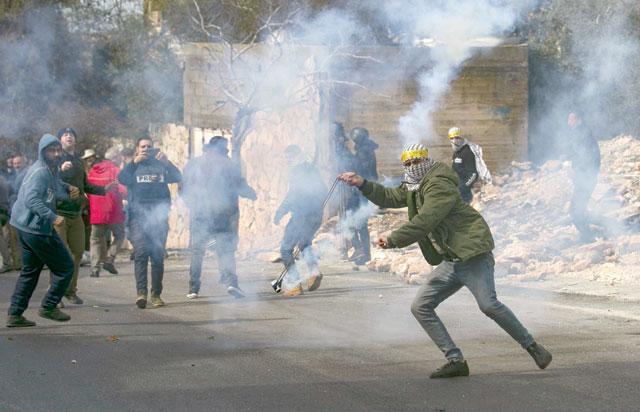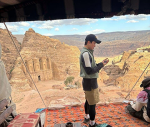You are here
Palestinians seethe at Trump’s ‘insane’ Jerusalem move
By Reuters - Dec 07,2017 - Last updated at Dec 07,2017
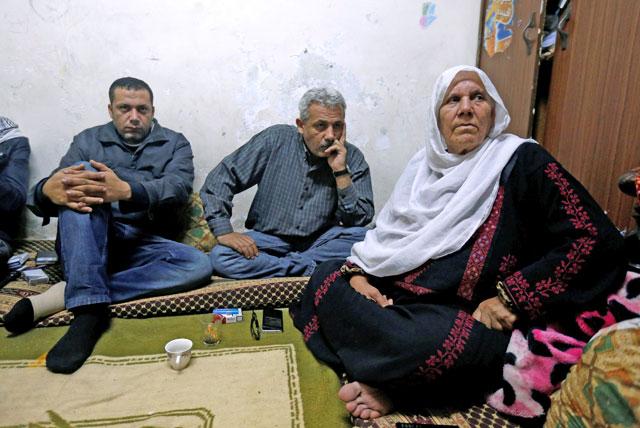
Palestinian refugee family watches a televised broadcast of US President Donald Trump delivering an address where he is expected to announce that the United States recognises Jerusalem as the capital of Israel, at Al Baqaa Palestinian refugee camp, near Amman, Jordan, on Wednesday (Reuters photo)
OCCUPIED JERUSALEM — Palestinians seethed with anger and a sense of betrayal over US President Donald Trump's decision to recognise the disputed city of Jerusalem as the capital of Israel.
Many heard the death knell for the long-moribund US-sponsored talks aimed at ending the Israeli-Palestinian conflict and establishing a Palestinian state alongside Israel. They also said more violence could erupt.
"Trump wants to help Israel take over the entire city. Some people may do nothing, but others are ready to fight for Jerusalem," said Hamad Abu Sbeih, 28, an unemployed resident of the walled Old City.
"This decision will ignite a fire in the region. Pressure leads to explosions," he said.
Jerusalem — specifically its eastern Old City, home to important shrines of Judaism, Christianity and Islam — is at the heart of the Israeli-Palestinian conflict.
Israel captured Arab East Jerusalem from Jordan in the 1967 Middle East War then later annexed it in a move not recognised internationally. Palestinians want it to be the capital of a future independent state and resolution of its status is fundamental to any peacemaking.
Trump announced later on Wednesday that the United States recognises the city as Israel's capital and will move its embassy there from Tel Aviv, breaking with a longtime policy.
"This is insane. You are speaking about something fateful. Jerusalem is the capital of the state of Palestine and neither the world nor our people will accept it," said Samir Al Asmar, 58, a merchant from the Old City who was a child when it fell to Israel.
"It will not change what Jerusalem is. Jerusalem will remain Arab. Such a decision will sabotage things and people will not accept it."
Palestinian newspapers also decried the move.
"Trump Defies the World," thundered Al Ayyam. Another, Al Hayat, roared "Jerusalem is the Symbol of Palestinian Endurance" in a red-letter headline over an image of the city's mosque compound flanked by Palestinian flags.
Palestinian leaders have also warned the move could have dangerous consequences. Although winter rains dampened protests called for East Jerusalem, the occupied West Bank and Hamas-dominated Gaza Strip, few doubted fresh bloodshed now loomed.
Israeli forces braced for possible unrest but police said the situation in Jerusalem was calm for now.
That could quickly change, given the religious passions that swirl around the Old City, where Al Aqsa Mosque, Islam's third-holiest shrine, abuts the Western Wall prayer plaza, a vestige of two ancient Jewish temples.
Palestinians mounted two uprisings, or Intifadas, against Israeli occupation from 1987 to 1993 then from 2000 to 2005, the latter ignited by a visit by then-opposition leader Ariel Sharon to the shrine area, known to Jews as Temple Mount.
Violent confrontations also took place in July when Israel installed metal detectors at an entrance to Al Aqsa compound after Arab gunmen holed up there killed two of its policemen. Four Palestinians and three Israelis died in ensuing violence.
Angry in Gaza
In the Palestinian coastal enclave of Gaza, demonstrators chanted "Death to America", "Death to Israel" and "Down with Trump". They also burned posters depicting the US, British and Israeli flags.
Youssef Mohammad, a 70-year-old resident of a refugee camp, said Trump's move would be a test for Arab leadership at a time of regional chaos and shifting alliances.
"Let him do it. Let's see what Arab rulers and kings will do. They will do nothing because they are cowards," the father of eight said.
The Jerusalem uproar could affect Egyptian-brokered efforts to bring Gaza, which has been under Islamist Hamas control for a decade, back under the authority of US-backed Palestinian President Mahmoud Abbas, who favours negotiation with Israel.
Hamas spokesman Hazem Qassem said Trump's planned moved showed the United States was biased.
"The United States was never a neutral mediator in any cause of our people. It has always stood with the occupation [Israel]," he said.
He said Abbas' administration should "rid itself of the illusion that rights can be achieved through an American-backed deal".
Related Articles
WASHINGTON — The US House of Representatives on Friday threw its weight behind a two-state solution for Israelis and Palestinians, in a warn
OCCUPIED JERUSALEM — US Secretary of State Mike Pompeo visited Israel on Wednesday for talks with leaders on plans to annex swathes of the o
RAMALLAH — After US President Donald Trump's announcement that he will finally launch his long-awaited Middle East peace plan this week, the


